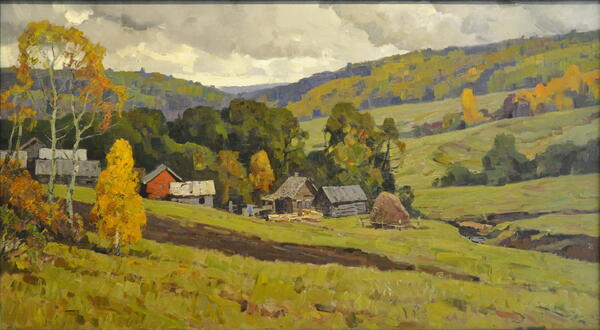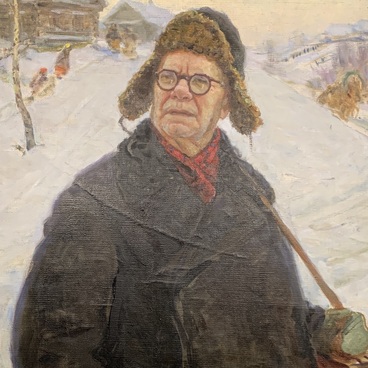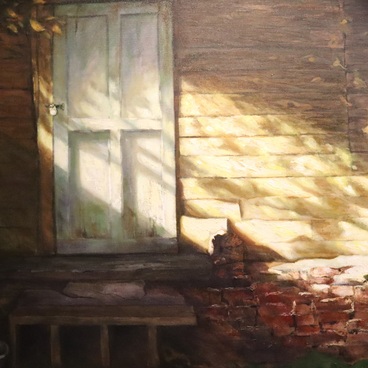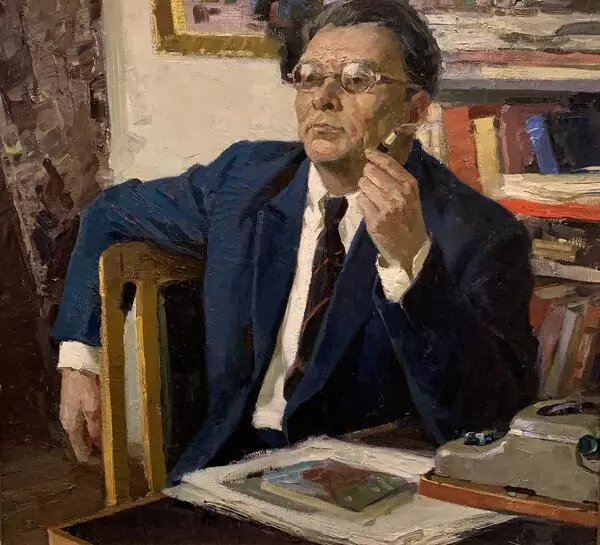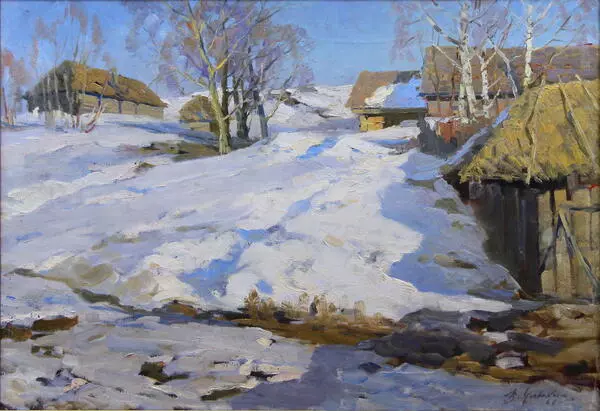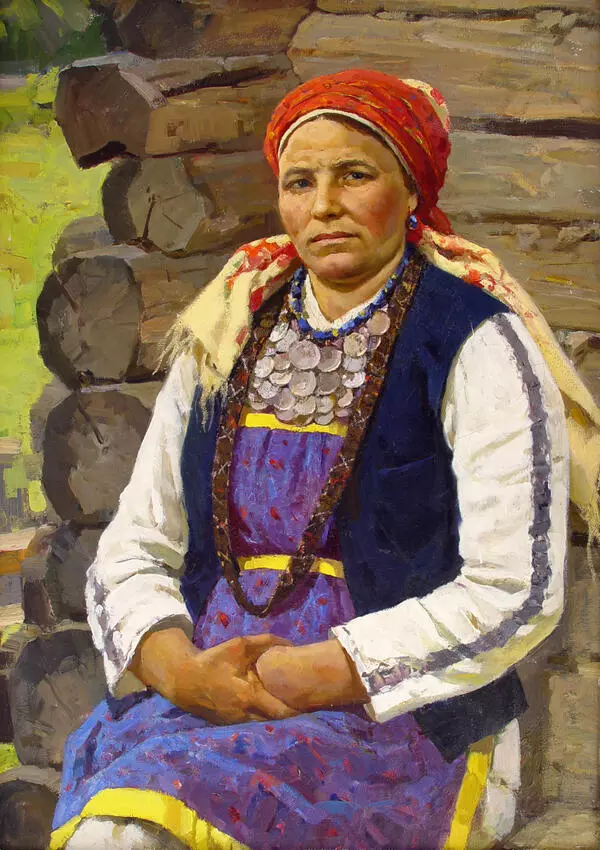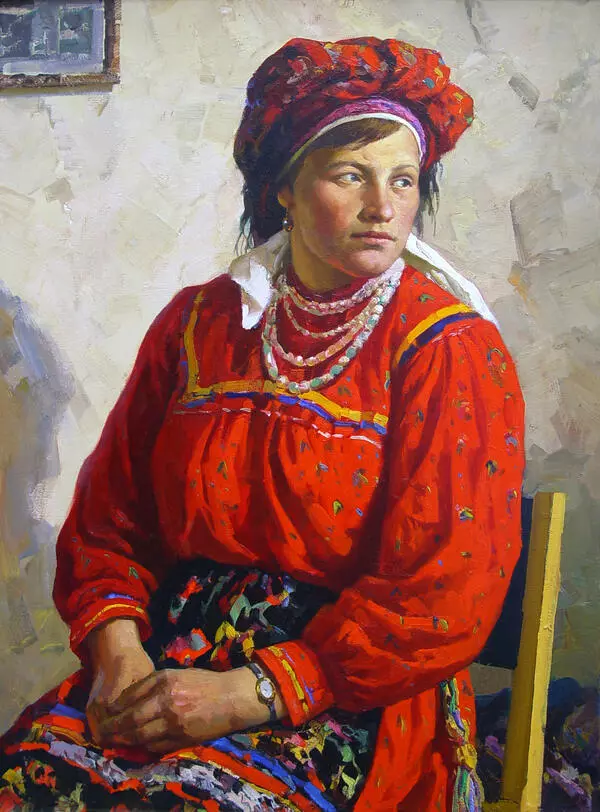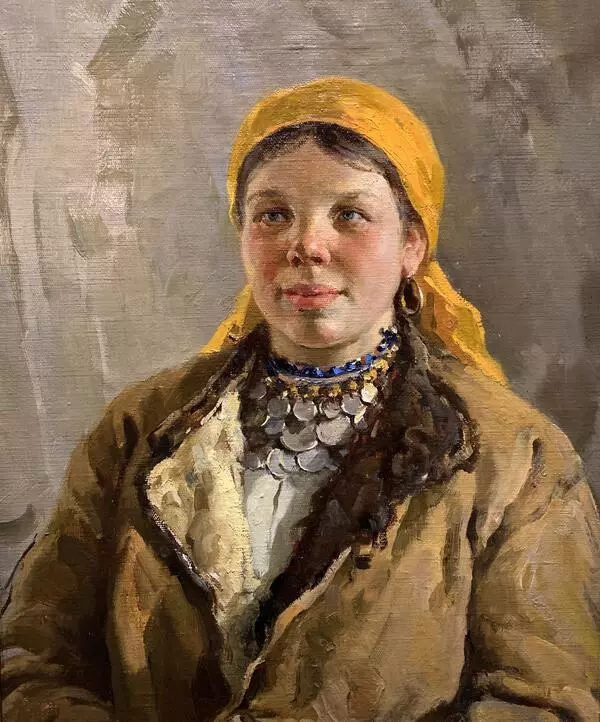The purely Russian feeling of nature, with which every Russian person is gifted, is expressed in the structure of the Russian soul. The Russian landscape is shaped by the vastness of the Russian land, the absence of visible borders and limits, and open, unburdened spaces. The landscape of the Russian soul therefore corresponds to the landscape of the Russian land: the same boundlessness of the open field, the same aspiration to infinity, breadth and inner strength. The Russian soul and landscape are inseparable from each other and are parts of a harmonious whole — this is what Vladimir Dmitrievich Ilyukhin’s creative concept is based on.
The search for harmony as a firm repudiation of the inconsistencies in the surrounding world is the eternal path of Russian art, which was uniquely indicated in the 20th century. This concept is most vividly present in Vladimir Ilyukhin’s exemplary canvas “Sunny Autumn Day” (1972).
The canvas breathes with power and grandeur of the native expanses combined with piercing lyricism that conveys an overwhelming filial affection for the Motherland. Slowly and honorably flowing from one plane to another and to the horizon, the space is literally sculpted with broad confident brush strokes. The noble color palette creates a solemn and calm mood, accurately conveying the tranquility of autumn nature. Transparent clouds like the finest ashy-gray chiffon glide across the sky, softly letting through sunrays, which highlight the rich combinations of crimson and gold, malachite and soft velvety-green tones of foliage on trees and grass on the gentle slopes. When contemplating this landscape, one is overcome with a feeling of something majestic, proud, eternal, and one understands where the Motherland begins.
Vladimir Ilyukhin perceives the landscape as a harmonious splendor of the world in its entirety. The native landscape gives him a sense of Russia, the country’s past and present. The landscape reflects the psychological state of the characters in his paintings, and most often the artist’s own “self”. It is also evident in the following works: “Willow Blossomed” (1978), “Krasnaya Podgora” (1978), “Bad Weather” (1995). The artist views the landscape as a formative element, without which the Russian soul would hardly be able to arise. His landscapes delight with their perspective and spiritual and psychological richness, which implies human presence.
The search for harmony as a firm repudiation of the inconsistencies in the surrounding world is the eternal path of Russian art, which was uniquely indicated in the 20th century. This concept is most vividly present in Vladimir Ilyukhin’s exemplary canvas “Sunny Autumn Day” (1972).
The canvas breathes with power and grandeur of the native expanses combined with piercing lyricism that conveys an overwhelming filial affection for the Motherland. Slowly and honorably flowing from one plane to another and to the horizon, the space is literally sculpted with broad confident brush strokes. The noble color palette creates a solemn and calm mood, accurately conveying the tranquility of autumn nature. Transparent clouds like the finest ashy-gray chiffon glide across the sky, softly letting through sunrays, which highlight the rich combinations of crimson and gold, malachite and soft velvety-green tones of foliage on trees and grass on the gentle slopes. When contemplating this landscape, one is overcome with a feeling of something majestic, proud, eternal, and one understands where the Motherland begins.
Vladimir Ilyukhin perceives the landscape as a harmonious splendor of the world in its entirety. The native landscape gives him a sense of Russia, the country’s past and present. The landscape reflects the psychological state of the characters in his paintings, and most often the artist’s own “self”. It is also evident in the following works: “Willow Blossomed” (1978), “Krasnaya Podgora” (1978), “Bad Weather” (1995). The artist views the landscape as a formative element, without which the Russian soul would hardly be able to arise. His landscapes delight with their perspective and spiritual and psychological richness, which implies human presence.

